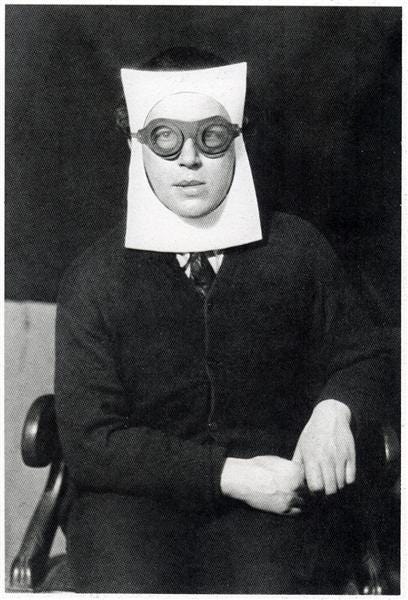Words Unchosen
The Practical Polymath #52
Hi Friends,
Of all the footage of shattered lives that I watched this week, there is one image in particular that I cannot stop thinking about. A father says goodbye to her daughter before she boards a train that will bring her to safety. He’s crying and cannot let go of her probably because he doesn’t know if he will ever see her again.
To my Ukrainian friends, to the people of Ukraine, I stand with you.
Florian
🇺🇦
Words Unchosen
Writing takes many different forms. A poem. An essay. A novel.
But all forms of writing share a common set of rules: logic.
It’s hard to imagine a piece of writing without words being assembled into a coherent pattern.
And yet, in the early twentieth century a group of French writers decided to bypass logic in the writing process. Their goal: to free creativity from the shackles of form and reason. To do so, they used a method called “automatic writing”. The idea was to decouple writing from conscious thinking. They would let the pen be guided by the flow of unfiltered thoughts and images as soon as they entered the mind.
Here’s an extract from “The Magnetic Fields”, a book written entirely using this technique:
“Prisoners of drops of water, we are nothing but perpetual animals. We run through noiseless cities and the enchanted posters no longer touch us. What’s the use of these huge fragile enthusiasms, these dried-out leaps of joy? We know nothing but dead stars; we look at faces; and we sigh with pleasure.”
Nonsense? Certainly. Poetic nonsense nonetheless.
In case you want to try this at home, Andre Breton’s got you covered. In his Surrealist Manifesto, he shares a step-by-step guide to automatic writing:
Put yourself in as passive, or receptive, a state of mind as you can.
Forget about your genius, your talents, and the talents of everyone else.
Keep reminding yourself that literature is one of the saddest roads that leads to anything.
Write quickly, without any preconceived subject, fast enough so that you will not remember what you’re writing and be tempted to reread what you have written.
I was intrigued so I gave it a shot.
A distant memory remains, the daily altar of otherness dissolved
Writing the electric machine does to the brain
We don't foresee what you are training for
Quit now or wait for the mountain top
The exhilarating fear, the features of less is more
What are you driving for
Here it comes again the sonata of times elastic
Before you bow look up to the castle on fire and disperse
Memories veiled in nothingness assail us in vain
I see your shadow like a light switched off in the dark
Weekly Wisdom
✍ Plain Language: Writing that is easy to read is better for everyone. But it is particularly important for the 20% of the population with learning disabilities. This piece unpacks the core elements of writing in plain language to make information accessible to everyone. And it does so in an incredibly compelling and pedagogical way. See for yourself.
🌀 On Routine: From the daily habits of Benedictine monks to our modern obsession with productivity, our routines have taken different forms through the ages. The author discusses the ongoing debate between those who view routine tasks as drudgery to be eliminated and those who see repetition and habit as a necessary source of fulfillment.
Lateral Thought
I find that a real gardener is not a man who cultivates flowers; he is a man who cultivates the soil. He is a creature who digs himself into the earth and leaves the sight of what is on it to us gaping good-for-nothings. He lives buried in the ground. He builds his monument in a heap of compost. If he came into the Garden of Eden, he would sniff excitedly and say: "Good Lord, what humus!”
Karel Capek



Automatic writing, although with a different name was picked by Jack Kerouac et al. Ya the image of that man saying goodbye to his daughter says it all.